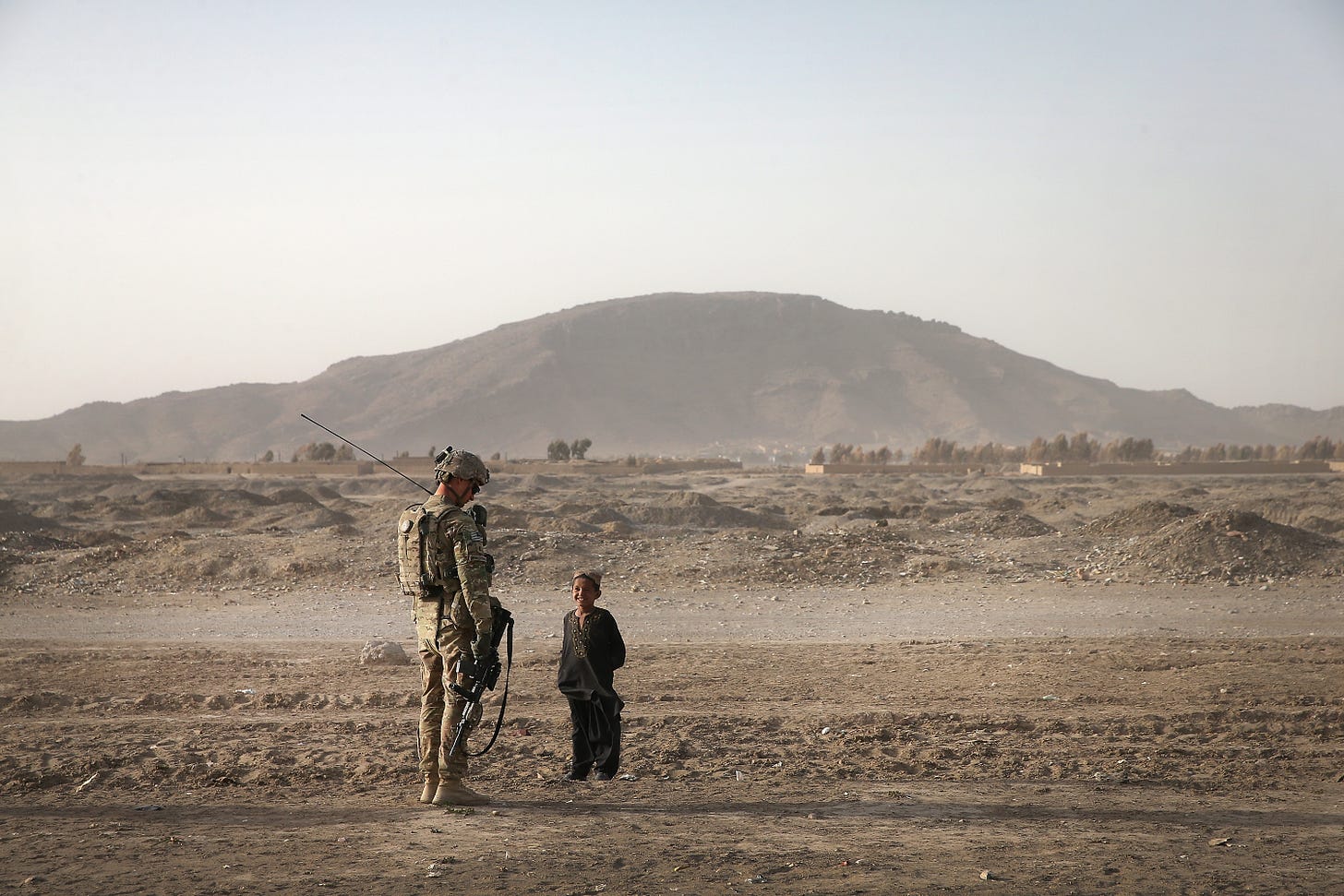We Didn’t Think Our American Friends Would Leave Us in the Dead of Night
In 2001, Afghanistan was a failed state. Twenty years later there were many bright spots.

When President Joe Biden was elected, we were promised a return to “normalcy.” The grown-ups had come back into government and America would wash away the stain of President Donald Trump’s legacy. As the Taliban took Kabul over the weekend, the return to normalcy was President Biden exhibiting the same reckless callousness we had come to expect from Trump.
I am an Afghan-American. My father left Kabul as the Soviets began to disappear members of my family. Eventually my grandfather, who was a member of Parliament, forced my father to leave for America. Raised in Queens by a grandmother whose parents came from Eastern Europe through Ellis Island, and a half-Tajik, half-Pashtun grandmother from Afghanistan, I am a product of what made America a global beacon of hope, and a piece of my heart has always been in Kabul. In 2020, along with three young reformers in Afghanistan’s parliament, I founded the Afghanistan-U.S. Democratic Peace and Prosperity Council (DPPC) to build a bridge between the young leaders in Afghanistan and the United States. We serve as a voice for the majority youth population in Afghanistan who embrace democracy and freedom.
Unfortunately, many Americans only hear about the failures of U.S. involvement in Afghanistan and see our most broken and despicable representatives. If you are a millennial in the United States, then you cannot think of Afghanistan without also thinking of the endless-war narrative and the rampant corruption and ineptitude of successive Afghan governments. The DPPC was founded so that Americans could learn what their sacrifice, their blood and treasure, had done for my people.
When Western forces entered the country, it was a failed state, devoid of modernity and hope. But twenty years later there were so many bright spots. We were making progress for women and girls, in civil society, education, health care, culture, and in sports. We have tens of millions of young Afghans, raised in a democracy, building a future for themselves and their country, embodying the same ideals and dreams that America’s youth have. Afghanistan didn’t have the benefit of 250 years of a democratic political system to guide us—but we were on our way.
We knew that American shoulders could not support Afghanistan forever—but we also didn’t think our friends would leave us in the dead of night.
President Biden was more familiar with the Afghanistan question than any of his predecessors. His disdain for the conflict was well known and Washington should not have been surprised at his decision to leave. However, after twenty years, Joe Biden of all people should know how to make a graceful exit. It is not a secret that fighting is cyclical—come late fall the weather in Afghanistan switches from desert heat to frozen tundra—making movements for exposed ground forces, like the Taliban’s, extremely difficult.
But the Biden return to normalcy only normalized Trump. Just like Trump in Syria, Biden left Afghanistan without a plan.
As an Afghan, I am quick to admit the weakness and venality of the former-President Ashraf Ghani and his government. History will judge him and his cronies very harshly for their nefarious actions, abandoning and selling out the military and country in its most desperate days. But this morning as we watched the Taliban march into the presidential palace, many on the American right and left were smugly congratulating themselves on Twitter for predicting the collapse of the Afghan National Defense and Security Forces. These anti-war leftists and libertarians taking their online victory laps cannot fathom what Afghans are going through. They have never lived in fear, been denied basic human rights or been forced into sexual slavery. They will never understand America’s successes.
What happened in Kabul is not as simple as a failing of Afghans—like anything else it’s more complicated.
Afghanistan’s military—trained and modeled after that of the United States—relies on air power to support combat missions. For months, more than a third of Afghanistan’s air force has been grounded. When you use American weapons they require technicians from U.S. contractors to be serviced. President Biden refused to leave contractors in Afghanistan and the ANSDF has been doing Zoom calls with their American counterparts to service military aircraft.
Read that sentence again. The Afghan security forces were doing Zoom calls with American contractors to try and service aircraft. The grounding of Afghanistan’s air force is not a secret to anyone—in fact just a few weeks ago our members of Parliament with the DPPC pleaded with the United States to do something about it. But this is the great return to normalcy; like Donald Trump, Joe Biden has abdicated all American moral responsibility in the world.
While all seems lost, there is still a fight to be had for the thousands of people who have supported the American military and diplomatic corps over the last two decades.
Biden has an opportunity to grant blanket amnesty to Afghans wanting to come to the United States and to demand the international community not only fail to recognize the Taliban, but destroy the U.S.-provided weapons it stole and sanction it out of existence. This is the least the United States can do to support the Afghan people: Help those who face violent retribution from the Taliban escape without harm, and give the lawmakers and political leaders who remain in service to the Afghan people a chance to either negotiate a system of government that does not set the country back twenty years, or fight for a future where they can be free. These measures will require overcoming jingoism and a lack of imagination, they will require strength and consensus building. A return to Trump’s normalcy would mean neither are accomplished—but President Biden still has an opportunity to restore American normalcy while helping the Afghan people. Let’s hope he does.

